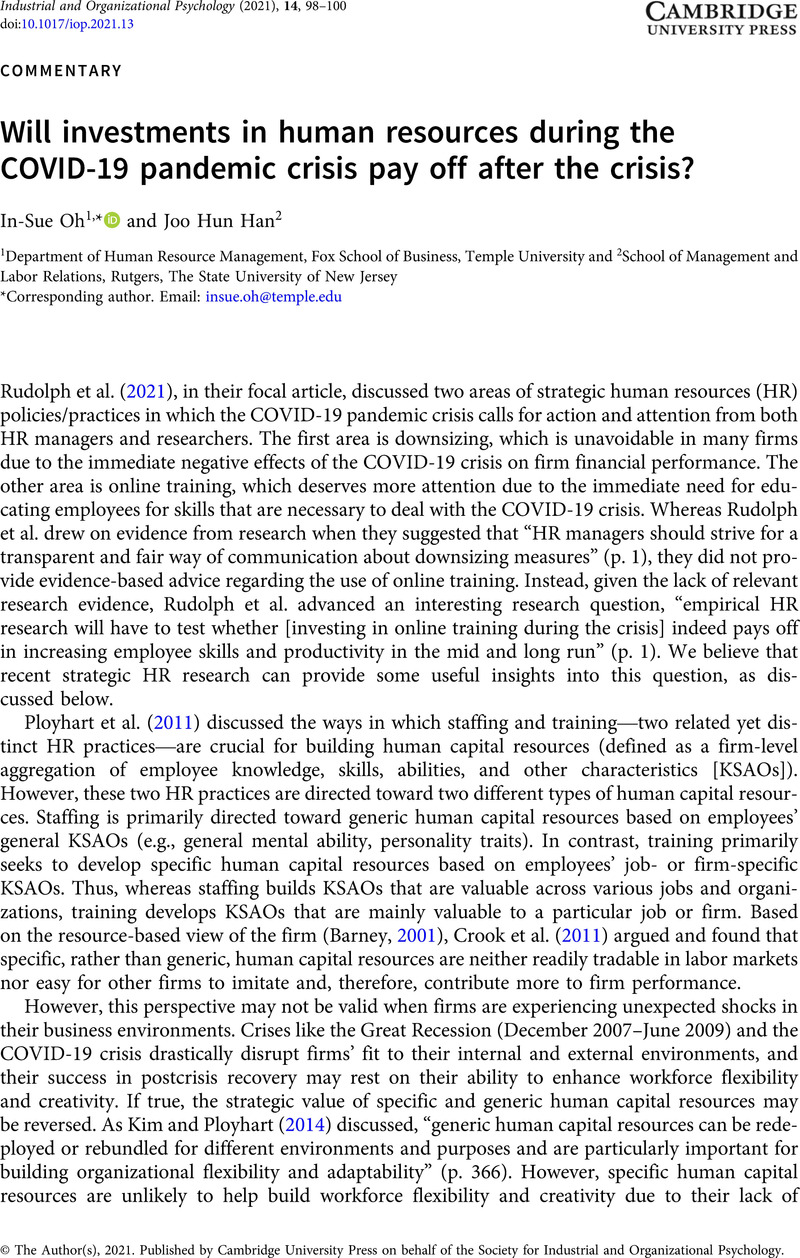Crossref Citations
This article has been cited by the following publications. This list is generated based on data provided by Crossref.
Subramony, Mahesh
Golubovskaya, Maria
Keating, Byron
Solnet, David
Field, Joy
and
Witheriff, Melissa
2022.
The influence of pandemic-related workplace safety practices on frontline service employee wellbeing outcomes.
Journal of Business Research,
Vol. 149,
Issue. ,
p.
363.
Zacher, Hannes
and
Rudolph, Cort W
2022.
Researching employee experiences and behavior in times of crisis: Theoretical and methodological considerations and implications for human resource management.
German Journal of Human Resource Management: Zeitschrift für Personalforschung,
Vol. 36,
Issue. 1,
p.
6.
Sokro, Evans
Obuobisa-Darko, Theresa
and
Dogbe Zungbey, Ophelia Delali
2023.
Enhancing organizational development: The role of green empowerment and participation and inclusive leadership after COVID-19 pandemic.
Social Sciences & Humanities Open,
Vol. 8,
Issue. 1,
p.
100756.
Padhy, Prabir Chandra
and
Lathabhavan, Remya
2023.
Redesigning Knowledge Management Through Corporate Sustainability Strategy in the Post-Pandemic Era.
Journal of Information & Knowledge Management,
Vol. 22,
Issue. 03,
Lucas, David S.
Bellavitis, Cristiano
and
Park, U. David
2023.
A cloud's silver lining? The impact of policy interventions on new and maturing technology ventures' online recruitment.
Strategic Entrepreneurship Journal,
Vol. 17,
Issue. 2,
p.
445.
Prysmakova, Sofia
and
Pysmenna, Olga
2024.
Exploring Determinants of Adaptive Capacity: The Nonprofit Sector in the Turbulent COVID-19 Environment in Belarus and Ukraine.
Public Performance & Management Review,
Vol. 47,
Issue. 6,
p.
1535.
Mousa, Mohamed
and
Arslan, Ahmad
2025.
Navigating between Grand Challenges and Unusual Work Setbacks: How Do Public Managers Use Strategic Human Resources Management?.
Public Organization Review,



